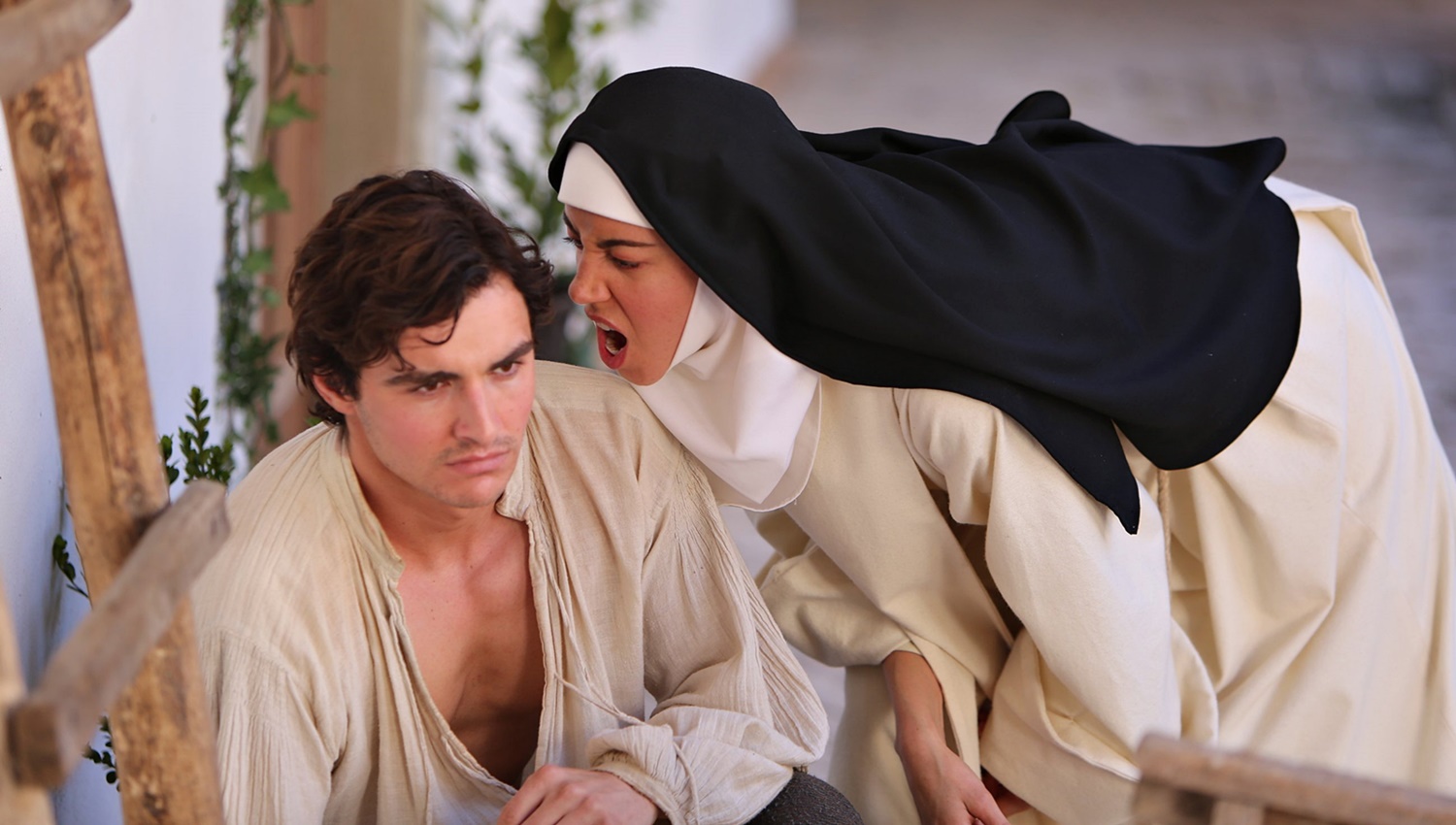
The Little Hours
Dustin Chase
I can appreciate clever, raunchy comedy, but there isn’t much to laugh at in The Little Hours. Writer Jeff Baena (I Heart Huckabees), also the director, takes what’s essentially a one-act joke and expands it into a feature. I think I laughed one time, but the jokes are not very creative, and I don’t find profanity humorous like some people. Newly crowned queen of vulgar comedy, Plaza (Mike and Dave Need Wedding Dates) turns in the same performance we have seen playing repeat in her filmography. “Did you just roll your eyes,” she is called out in one scene. That’s basically every Plaza performance: one long eye roll. Even the title, explained by IMDB, “The joke in the title is that the word “Hours” is supposed to be pronounced as if there were a “W” at the beginning of the word, is lost on the viewer.
We find our characters in 14th-century Italy. A new male presence among three eager nuns is causing quite a ruckus. Alessandra (Brie), the nun from wealth and prestige, has lost all hope in humanity and views the hunky deaf-mute (Franco) as a way to get some enjoyment out of life. The more devious nun, Fernanda (Plaza), likes the pleasures of men and women; when she isn’t pretending to pray, she is practicing witchcraft in the woods. Genevra (Micucci) is innocent in lustful pleasures but is pulled into her friend’s wicked ways and exposes everyone after a night of debauchery. Father Tommasso (Reilly) has a serious drinking problem, while Head Sister Marea (Shannon) also bears a sinful secret. The young, good-looking Massetto, pretending to be mute, is the subject of all the young girl’s pleasure.
What might have worked as a 10-minute segment on Funny or Die, is instead unnecessarily given the feature film treatment.
What’s supposed to be funny is the modern slang dialogue worked into a story that takes place in 1347. For some audiences, they might find that gag worth the price of admission. Real comedians Shannon and Reilly are underutilized in favor of the younger actors repeating gags we have seen them do in other movies. The script refers to men as sluts (worth a grin, not a laugh), and perhaps the funniest moment in the entire movie is when an elderly priest with Parkinson’s is trying to put the communal bread in the mouths of the congregation. The screenplay is based on the first tale of the Third Day from The Decameron (1971), which is, of course, based on a collection of novellas by the 14th-century Italian author Giovanni Boccaccio (1313–1375).
Baena’s script, in reality, is an outline, where the burden lies with the actors to improvise most of the script. This explains a lot of the script’s downtime and lack of movement towards whatever eventual ending they land on. What might have worked as a 10-minute segment on Funny or Die is instead unnecessarily given the feature film treatment, hurdling towards a limited release for audiences at theaters where beer is served so they can have an excuse to laugh. The Little Hours is lazy, uncreative, and boring for those expecting a cinematic experience.
Final Thought
A failed attempt at humor and improvisation.
